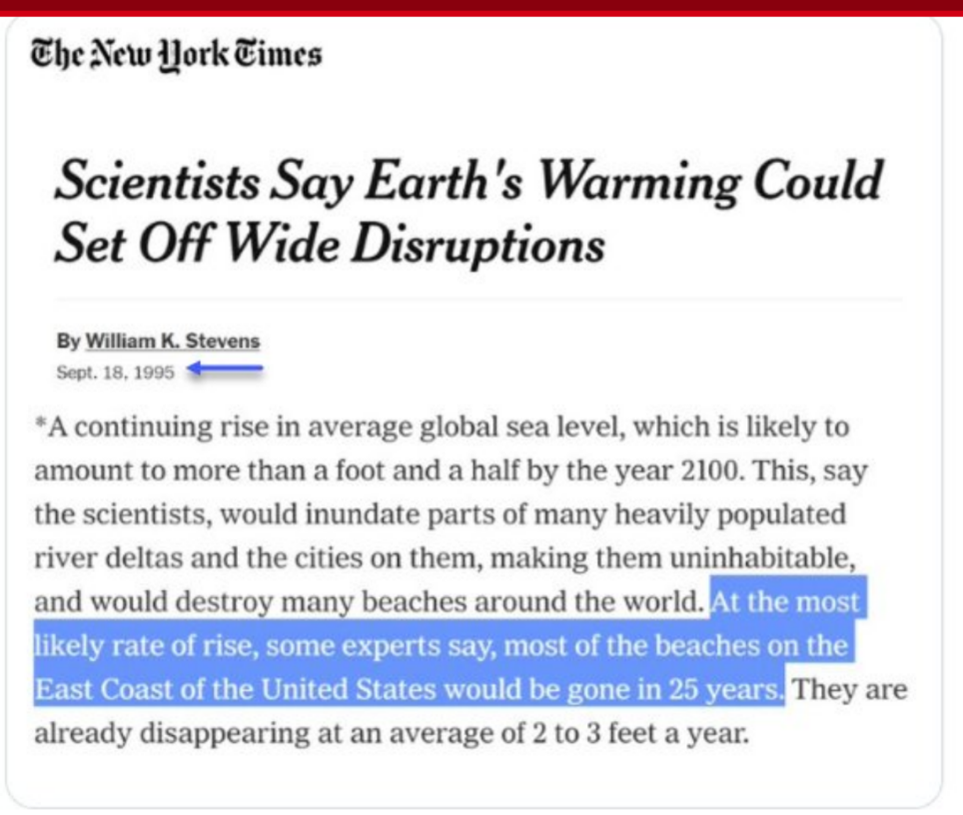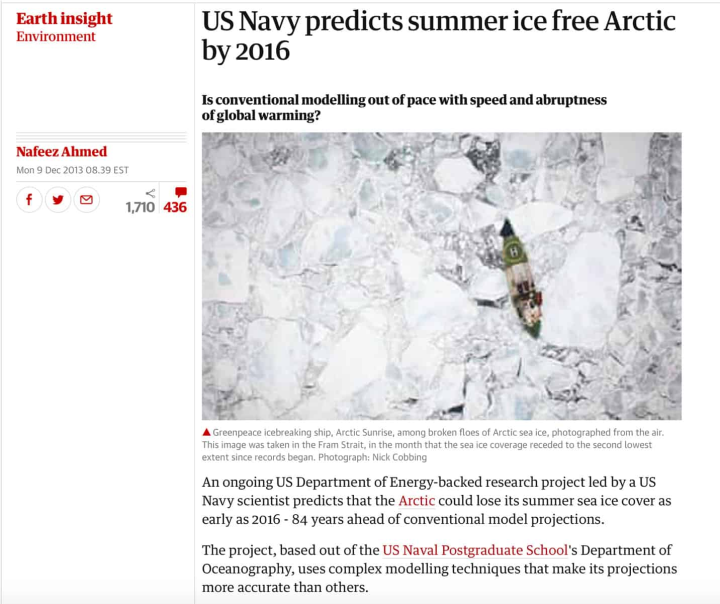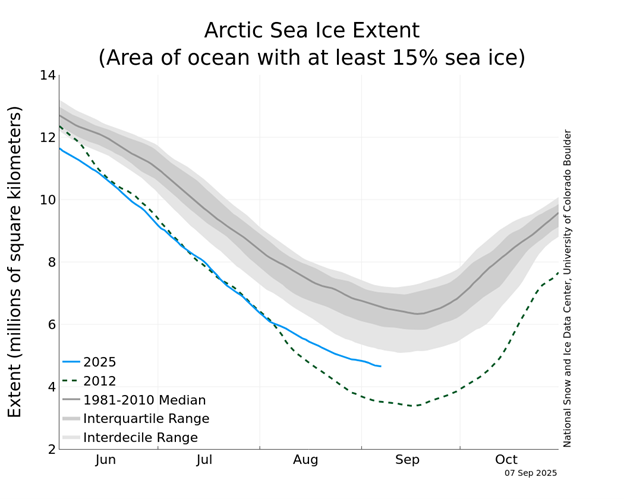What’s a Fella To Think?
My morning WSJ contained an Opinion piece by one Steven E Koonin titled ‘At last, clarity on climate change’ which starts with this sentence:
“A recent Energy Department report challenged the widespread belief that greenhouse-gas emissions pose a serious threat to the nation.”
Mr. Koonin is one of five co-authors of said report, which was commissioned by the current US Secretary of Energy. Mr. Koonin says these are some of the report’s key findings:
- Elevated carbon-dioxide levels enhance plant growth, contributing to global greening and increased agricultural productivity.
- Complex climate models provide limited guidance on the climate’s response to rising carbon-dioxide levels. Overly sensitive models, often using extreme scenarios, have exaggerated future warming projections and consequences.
- Data aggregated over the continental U.S. show no significant long-term trends in most extreme weather events. Claims of more frequent or intense hurricanes, tornadoes, floods and dryness in America aren’t supported by historical records.
- While global sea levels have risen about 8 inches since 1900, aggregate U.S. tide-gauge data don’t show the long-term acceleration expected from a warming globe.
- Natural climate variability, data limitations and model deficiencies complicate efforts to attribute specific climate changes or extreme events to human CO2 emissions.
- The use of the words “existential,” “crisis” and “emergency” to describe the projected effects of human-caused warming on the U.S. economy finds scant support in the data.
- Overly aggressive policies aimed at reducing emissions could do more harm than good by hiking the cost of energy and degrading its reliability. Even the most ambitious reductions in U.S. emissions would have little direct effect on global emissions and an even smaller effect on climate trends.
He then adds – ‘Our work has attracted strong criticism, despite its grounding in established science.’
What a surprise, eh? So, let’s cut to the chase. I have not read this report, and don’t expect I will. In the Comments after the piece, a reader notes that a group of ‘climate experts’ have written a rebuttal/commentary on the report, which you can download here. It runs to 459 pages, and no, I’m not gonna read it, either.
Is this because I am confident the DOE report that Koonin is touting has it right? God no, I have no reason to believe reports that come out of the Trump executive branch at this point. It no doubt contains grains of truth, but here’s the thing. If that DOE report had come from the Biden Energy Department I would not bother to read that, either. I have no reason to think that any of these people are not stretching the truth, misusing logic, and painting the evidence up so as to support whatever pre-determined position they hold. That, sadly, is the state of governance and academic research in the Western world today.
That all being said, here is something of which I am quite sure. The media has for many many years been all too eager to put doomsday scenarios on their pages, and the so-called ‘scientific community’ has always contained enough alarmists that such scenarios can be given credibility by people with letters after their names. God save us from people with letters after their names.
I blame a lot of things on the internet, as my regular readers know, but this goes back to well before the invention of that bit of infrastructure. The older folks among you may remember the famous book The Limits to Growth, put out by a group of wise folks called The Club of Rome in 1972. It predicted the end of mankind was looming due to exploding population, ever-increasing pollution and the depletion of non-renewable resources. You can go here to a commentary in Reason in 2012 to see how those predictions were going up to then.
But wait, there’s more. I have compiled a list of doomsday predictions from the last many years, all of them made by people with letters after their names, and published with considerable fanfare by the media.
Predictions:
- Headline in the Salt Lake Tribune, 17 Nov, 1967 ‘Dire Famine Forecast by ‘75’
The article contains extensive quotes from one Paul Ehrlich, a biologist. Here’s one:
“At the moment it is shockingly apparent that the battle to feed humanity will end in a rout, said Ehrlich.”
There was no general famine in ’75, but honestly, it is a bit too easy to pick on Ehrlich. His entire career since then has been one of predicting one catastrophe after another, none of which have occurred, and yet – he keeps getting airplay. He’s at Stanford, dontchaknow? He was in the news within the last few years again with yet another dire prediction, the details of which I have forgotten. Look him up. Or not.
- Newsweek, April 28, 1975, The Cooling World
Here’s a quote from one of the letters-after-name people in this article:
“The central fact is that after three quarters of a century of extraordinarily mild conditions, the earth’s climate seems to be cooling down.’
There are a bunch of these you can dig up from the 70s. It is easy to forget (or to have never realized, if you are young enough) that for a good while the letters-after-the-name people were telling us to fear a new Ice Age. Click on the link above to read what (some of) those folks were saying back then.
Here’s another one.
3. “The world has been chilling sharply for about twenty years. If present trends continue, the world will be about four degrees colder for the global mean temperature in 1990, but eleven degrees colder in the year 2000. This is about twice what it would take to put us into an ice age.”
• Kenneth Watt, Ecologist, Earth Day, 1970
- Moving forward in time, the NYT has always loved a good Catastrophe story. Here’s the beginning of one from 1995:

Needless to say, the beaches on the east coast of the USA are still there, 29 years later. I know some folks who had a great vacation on one of them last month.
- Another one from the first Earth Day.
“Scientists have solid experimental and theoretical evidence to support…the following predictions: In a decade, urban dwellers will have to wear gas masks to survive air pollution…by 1985 air pollution will have reduced the amount of sunlight reaching earth by one half….”
• Life Magazine, January 1970
6. And this one I include largely due to the last line. The formatting suggests it’s from The Guardian, but I can’t precisely nail it down.

That last sentence is classic: ‘uses complex modeling techniques that make its projections more accurate than others.’ First, how do you know before the fact which model’s projections are more accurate? Um…you don’t, cuz you can’t. And, what logical or other principle says that ‘more complex’ means ‘more accurate’ anyway? None. But hey, he’s a US Navy scientist, we can’t expect him to know about those sorts of things. I expect that he looooves his model, though.
In the same vein, an article in The Guardian from July of 2013 that I did track down is headlined thus:
Ice-free Arctic in two years heralds methane catastrophe – scientist
Professor Peter Wadhams, co-author of new Nature paper on costs of Arctic warming, explains the danger of inaction
You can read the whole article here, but the big quote from Professor Wadhams is this:
An ice-free summer (September) Arctic is clearly nearly upon us, and will be achieved within three years or less – this is plain from the observational data on ice extent (satellites) and thickness (submarines and altimeter satellites).
Here is the latest data on the arctic sea ice in 2025, 12 years after Wadham’s quote above.

Note that it falls during summer as you would expect, then starts to rise again in September – meaning, now. The current year looks very much like what happened in 2012, although the drop in ice through August of 2025 has been less than it was in 2012. Throughout the 2025 season, the ice cover has been less than the 1981-2010 median, clearly. Is that a concern? Perhaps it is, but it has not ‘disappeared’, some 12 years after that prediction was made.
I could go on. Prince Charles, (before becoming King) back in 2018 (ok, he has very different letters after his name) said we had 18months to solve climate change and save humanity. Greta Thunberg (yea, her) who has no letters after her name at all, so far as I know, put up a Tweet back in 2018 that said that someone with letters after their name (“a top climate scientist” – you know who you are) said that climate change would wipe out all humanity if we don’t stop using fossil fuels in the next five years. She took the post down later, but you can find it online, dated 2018. Yet, here we humans are, still.
And I haven’t even mentioned Al Gore.
Is my point in digging up all this bullshit that no one with a brain should think there is anything to worry about regarding climate change or global warming or whatever it is called in a couple of years? That it’s all hyped-up bullshit?
No. Certainly not. But there is plenty of bullshit out there, so…..what?
My point is that the media is full of people – some with letters, some without – saying shit that at the time should have been taken as unlikely, has now been shown to be bullshit, and yet they keep getting quoted, and so it is not exactly hard to understand why everyone is skeptical of everything. It is supposed to be the media’s job to be skeptical, or so I always believed, but today the media are only skeptical of things said by ‘the other side’ and all media has by now picked a side. Even sadder, so have most academics, and they are the only ones who could possibly go through the new DOE report, and the rebuttal, and figure out what is really up.
No one in academia is going to do that, of that I am sure, and I can see no good reason to pay attention to anyone who said they had, whether or not they have letters after their names.
And, be clear my friends, that the truth is neither ‘Climate change is real and will soon be a catastrophe’ nor ‘Climate change is not real so we need not worry.’
Nothing in nature is that simple or binary. But simple (and therefore surely wrong) is all we ever get.